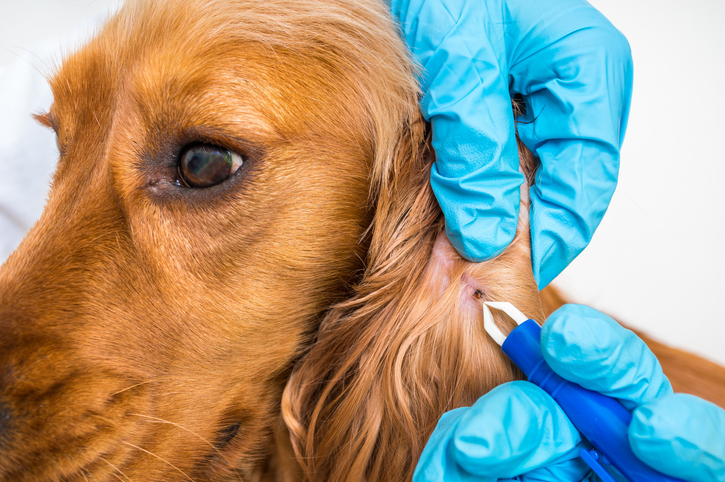With more people travelling around the world than ever before, it’s becoming increasingly common for animal lovers to adopt pets from places far from home. These days, for instance, many people adopt pets from California, Texas, and Mexico, bringing them back home to beautiful British Columbia from all over the continent, or even from overseas.
Adopting a pet is a major life decision—you are adding a member to the family, after all—and it’s vital for new pet owners to go about it correctly. Pets coming from other places in the world often need some special treatment to ensure the health of people, other animals, and your pet themselves. In this article, we’ll go over everything you need to know about adopting a pet from someplace abroad.
Protect from Uncommon Infections and Illnesses
If you legitimately adopt a pet in British Columbia, they’ll be required to get vaccinated for a few conditions commonly seen in this region. These may vary slightly but usually include conditions such as:
- Rabies
- DHPP (canine distemper, hepatitis, parainfluenza, and parvovirus)
- Leptospirosis
- Bordetella
- FVRCP (feline viral rhinotracheitis, calici virus, and panleukopenia)
- Feline leukemia
However, pets that come from other parts of the world may have been exposed to infections that are virtually unheard of in Western Canada. Take, for instance, deep fungal infections, which can remain dormant in your pet’s body for years after exposure. Heartworm (a parasitic infection of the lungs) is another example of an uncommonly seen issue in BC, which may affect a dog that’s been adopted from Mexico or the southern United States.
Pets previously exposed to harsh weather and a high UV-light index can also be prone to skin problems we are not used to seeing in our pets in BC. While few of these diseases have the potential to spread to other pets, the pet most at risk would be the one carrying the dormant infection. This is why it’s so important to find (and/or establish) as complete of a medical history as possible for your adopted pets.
Uncovering Your Pet’s Medical History and Needs
Adopted pets have often had some form of care lacking in their history. Plus, many pets will have an incomplete (or nonexistent) medical history record. Thus, a non-infectious underlying medical condition can also be a concern in newly adopted adult or geriatric pets. Adult cats that have previously lived outdoors in endemic regions for life-threatening viral illness, such as feline AIDS and feline leukemia for instance, are best confirmed to be negative for such illness before or soon after adoption.
So what can prospective pet parents do? Be thorough. It’s essential to do your research prior to adopting a pet from a different geographical region, even within Canada. Always enquire if the pet has been receiving long-term preventive care based on its surroundings.
An example would be finding out if a current owner has been providing ongoing heartworm preventives for a pet living in Ontario or California. Ask if the cat being adopted has been an outdoor pet previously, which would indicate a need for tests for AIDS (different from HIV in people) and leukemia—provided that it hasn’t already been performed. Ask for a copy of previous medical history, if available. Also, be sure to ask if there is a specific medical reason for the pet being on its current diet.
Working With a Trusted Veterinarian
Once you have brought the new family member to your house, prioritize a complete veterinary evaluation with your veterinarian. Let your vet know where the pet has come from—this can help potentially detect underlying medical concerns, as well as give your veterinarian a chance to ensure that the diet and preventive care are in line with the individual pet’s needs.
For example, pets adopted from another province may not be current on flea prevention, which is absolutely vital for year-round protection for a dog or cat with an outdoor lifestyle in the Lower Mainland. While we recommend that all pets have veterinary health insurance, we advise health insurance for newly adopted adult pets in particular, as a veterinary examination at adoption does not preclude the chance of medical bills in the near future.
For pets that are moving with their families, again, taking the pet to a veterinarian soon after moving would help ensure that you are following a veterinary health program suitable for the new region you have moved into. Because of all the pets moving in and out of the Lower Mainland (either with their families or through adoption), it’s even more important than before to keep them up to date with vaccinations and programs to control fleas, ticks, and worms.
Whether your pet has just arrived to your home from a faraway country, a neighbouring province, or simply from your local shelter in Burnaby BC, ensuring your new pet is thoroughly checked will help prevent unnecessary pain or discomfort for your pet and protect from heartache and hassle for your family.
Creative Commons Attribution: Permission is granted to repost this article in its entirety with credit to Hastings Veterinary Hospital and a clickable link back to this page.






